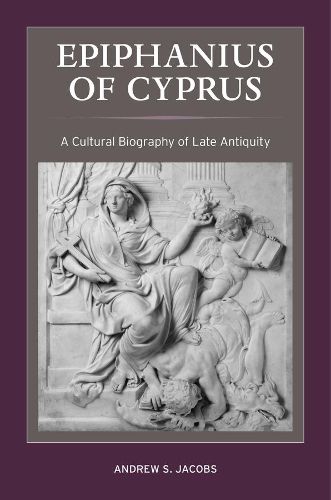Readings Newsletter
Become a Readings Member to make your shopping experience even easier.
Sign in or sign up for free!
You’re not far away from qualifying for FREE standard shipping within Australia
You’ve qualified for FREE standard shipping within Australia
The cart is loading…






Epiphanius, Bishop of Constantia on Cyprus from 367 to 403 C.E., was incredibly influential in the last decades of the fourth century. Whereas his major surviving text (the Panarion, an encyclopedia of heresies) is studied for lost sources, Epiphanius himself is often dismissed as an anti-intellectual eccentric, a marginal figure of late antiquity. In this book, Andrew Jacobs moves Epiphanius from the margin back toward the center and proposes we view major cultural themes of late antiquity in a new light altogether. Through an examination of the key cultural concepts of celebrity, conversion, discipline, scripture, and salvation, Jacobs shifts our understanding of late antiquity from a transformational period open to new ideas and peoples toward a Christian Empire that posited a troubling, but ever-present, otherness at the center of its cultural production.
$9.00 standard shipping within Australia
FREE standard shipping within Australia for orders over $100.00
Express & International shipping calculated at checkout
Epiphanius, Bishop of Constantia on Cyprus from 367 to 403 C.E., was incredibly influential in the last decades of the fourth century. Whereas his major surviving text (the Panarion, an encyclopedia of heresies) is studied for lost sources, Epiphanius himself is often dismissed as an anti-intellectual eccentric, a marginal figure of late antiquity. In this book, Andrew Jacobs moves Epiphanius from the margin back toward the center and proposes we view major cultural themes of late antiquity in a new light altogether. Through an examination of the key cultural concepts of celebrity, conversion, discipline, scripture, and salvation, Jacobs shifts our understanding of late antiquity from a transformational period open to new ideas and peoples toward a Christian Empire that posited a troubling, but ever-present, otherness at the center of its cultural production.